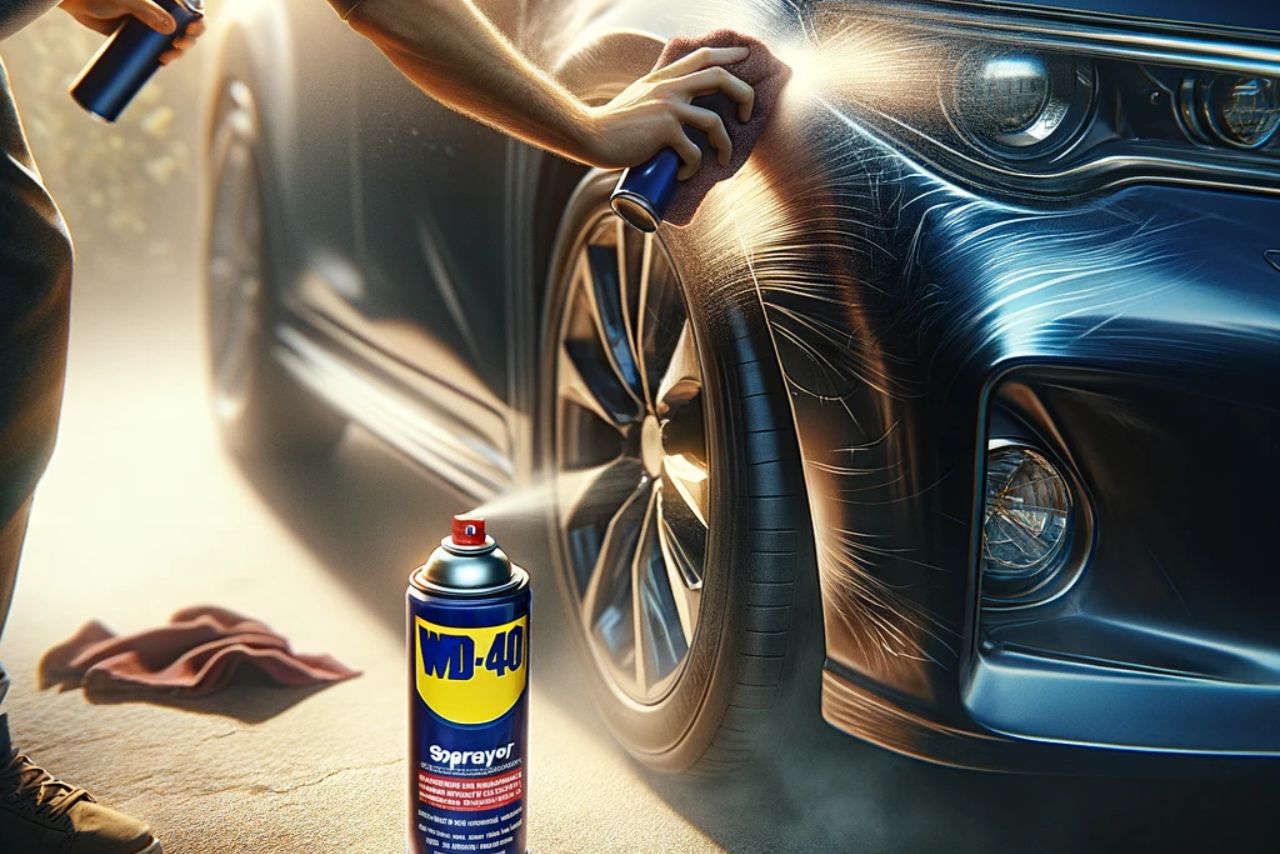Is Conventional Motor Oil Being Phased Out? It’s a question that many car owners may be asking themselves as they hear more about the newest performance standards.
The answer, simply put, is yes. Conventional motor oil, which has been the go-to choice for decades, is struggling to keep up with the demands of modern engines. With advancements in technology and the need for higher efficiency, conventional motor oil just isn’t cutting it anymore.
Today’s engines are designed to operate at higher temperatures and under greater stress, requiring a lubricant that can withstand these conditions.
Conventional oil, made from crude oil, lacks the necessary additives and viscosity to provide optimal protection and performance.
As a result, many automakers and engine manufacturers are moving towards synthetic or synthetic blend oils.
While conventional oil may still be suitable for older vehicles or those with less demanding requirements, it’s clear that its days as the dominant choice are numbered.
So, if you want to keep your engine running smoothly and efficiently, it may be time to consider making the switch to a more advanced oil option.
Table of contents
Is Conventional Motor Oil Being Phased Out?
Conventional motor oil is not being phased out in the sense that it will be banned or unavailable. While there is a growing trend towards the use of synthetic motor oils, conventional motor oil is not being phased out entirely. Conventional motor oil is still widely used and readily available for purchase.
However, synthetic motor oils are becoming increasingly popular due to their superior performance and longer lifespan. Synthetic oils offer better protection against engine wear, higher resistance to thermal breakdown, and improved fuel efficiency.
As a result, many automakers now recommend or require the use of synthetic motor oils in their vehicles. Nonetheless, conventional motor oil remains a viable option for those who prefer it or who have older vehicles that require it.
It is becoming less common as more and more vehicles are designed to use synthetic oil. This is because synthetic oil offers several advantages over conventional oil, including:
As a result, many automakers are now specifying that their vehicles use synthetic oil. In fact, by 2019, about 70% of all new vehicles required the use of either a full or blended synthetic motor oil.
While conventional oil is still a viable option for some vehicles, it is likely that its use will continue to decline in the years to come. This is because synthetic oil offers clear advantages over conventional oil and is becoming more affordable.
Here are some of the reasons why conventional motor oil is being phased out:
However, there are still some reasons why people might choose to use conventional motor oil:
Ultimately, the decision of whether to use conventional or synthetic motor oil is a personal one. However, the trend is clear that synthetic oil is becoming more popular and conventional oil is becoming less common.
The Rise of Synthetic Motor Oil:
- OUR BEST PERFORMING HIGH MILEAGE MOTOR OIL is formulated with Ultra MaxLife Technology, the ultimate protection for vehicles with more than 75,000 miles
- DESIGNED WITH PREMIUM SEAL CONDITIONERS to treat and prevent oil leaks
- 10X STRONGER AGAINST OIL BREAKDOWN and 50% greater wear protection than industry standards
- ENHANCED WEAR ADDITIVES and friction-fighting agents to safeguard critical engine components
- MEETS OR EXCEEDS ALL REQUIREMENTS of ILSAC GF-6A, API SP, API SN with SN PLUS, API SN
- AMERICAN MADE & FORMULATED to maximize your engine’s life and improve it’s performance
Synthetic motor oil has been gaining popularity in recent years as an alternative to conventional motor oil.
With advancements in technology, it has become a viable option for car owners who want to enhance the performance and longevity of their vehicles. Here’s why synthetic motor oil is on the rise:
Overall, synthetic motor oil has proven to be a reliable and effective choice for car owners seeking optimal engine performance and protection.
As technology advances and more vehicles require higher-performance lubricants, the popularity of synthetic motor oil is likely to continue to rise.
| Advantages of Synthetic Motor Oil |
|---|
| – Improved performance |
| – Enhanced engine protection |
| – Extended oil change intervals |
| – Better cold weather performance |
| – Compatibility with modern engines |
| – Reduced deposits |
Performance Standards for Motor Oil:

Motor oils play a crucial role in keeping our engines running smoothly and efficiently. As technology advances and engines become more sophisticated, the need for higher-performing motor oils has become apparent.
In order to meet these demands, performance standards have been established to ensure that motor oils provide the necessary protection and performance.
Here, we’ll take a closer look at these standards and how they are shaping the future of motor oil.
1. Viscosity Ratings:
One important aspect of motor oil performance is its viscosity, which determines how well it flows at different temperatures.
The Society of Automotive Engineers (SAE) has established viscosity ratings, such as 5W-30 or 10W-40, to indicate the oil’s flow characteristics.
These ratings ensure that the oil maintains proper lubrication in both cold starts and high-temperature conditions.
2. API Service Categories:
The American Petroleum Institute (API) has established service categories to indicate the performance level of motor oils.
These categories, such as API SN or API SP, ensure that the oil meets specific requirements for engine protection, cleanliness, and fuel efficiency.
As engines become more advanced, newer API service categories are introduced to address emerging needs.
3. OEM Specifications:
Original Equipment Manufacturers (OEMs) often specify certain performance requirements for motor oils used in their vehicles.
These specifications ensure that the oil meets the specific needs of the engine and provides optimal performance and protection.
It is important to use motor oils that meet the OEM specifications recommended for your vehicle to ensure proper engine care.
4. Fuel Economy Standards:
With a growing emphasis on fuel efficiency and reducing emissions, motor oils are also being evaluated based on their impact on fuel economy. Oils that can reduce friction and improve engine efficiency can help maximize fuel economy.
Therefore, some motor oils are formulated to meet fuel economy standards, such as API FA or ILSAC GF-6, to provide improved mpg (miles per gallon).
Conventional Motor Oil: A Dying Breed

When it comes to the world of motor oils, conventional oil has had a long-standing reign.
However, with the continual advancement of technology and the increasing demands placed on engines, conventional motor oil is slowly but surely being phased out. Here’s why:
1. Inability to Meet New Performance Standards:
One of the main reasons why conventional motor oil is being phased out is its inability to meet the newest performance standards set by engine manufacturers.
Today’s engines are designed to run more efficiently and perform at higher levels than ever before.
Conventional oil, with its basic formulation, struggles to provide the necessary protection and lubrication required by these advanced engines.
2. Inferior Performance in Extreme Conditions:
Conventional motor oil also falls short when it comes to performing under extreme conditions.
Whether it’s high temperatures or cold starts, conventional oil tends to break down more quickly, leading to increased engine wear and reduced overall performance.
In comparison, synthetic oils, which are becoming increasingly popular, offer superior protection and stability, even in the harshest environments.
3. Environmental Concerns:
As the world becomes more conscious of the environmental impact of our choices, conventional motor oil is facing scrutiny due to its higher carbon footprint.
Conventional oil is derived from crude oil, a non-renewable resource, and its production and disposal contribute to greenhouse gas emissions.
Synthetic oils, on the other hand, can be engineered to have a smaller environmental impact, as they can be made from recycled materials or renewable resources.
4. Synthetic Oil’s Rise in Popularity:
The rise in popularity of synthetic oils has also played a significant role in phasing out conventional motor oil.
Synthetic oils offer numerous advantages, including better engine protection, improved fuel economy, and extended oil change intervals.
While synthetic oils may be pricier initially, the long-term benefits and superior performance often outweigh the higher cost.
| Reasons for Conventional Motor Oil Phasing Out |
|---|
| Inability to meet new performance standards |
| Inferior performance in extreme conditions |
| Environmental concerns |
| Synthetic oil’s rise in popularity |
Benefits of Synthetic Motor Oil:
- OUR BEST PERFORMING HIGH MILEAGE MOTOR OIL is formulated with Ultra MaxLife Technology, the ultimate protection for vehicles with more than 75,000 miles
- DESIGNED WITH PREMIUM SEAL CONDITIONERS to treat and prevent oil leaks
- 10X STRONGER AGAINST OIL BREAKDOWN and 50% greater wear protection than industry standards
- ENHANCED WEAR ADDITIVES and friction-fighting agents to safeguard critical engine components
- MEETS OR EXCEEDS ALL REQUIREMENTS of ILSAC GF-6A, API SP, API SN with SN PLUS, API SN
- AMERICAN MADE & FORMULATED to maximize your engine’s life and improve it’s performance
Synthetic motor oil is gaining popularity among car enthusiasts and professionals alike. Here are some key benefits of using synthetic motor oil:
Synthetic motor oil offers several advantages over conventional oil, including improved engine performance, extended oil change intervals, enhanced engine protection, better fuel efficiency, superior performance in extreme conditions, and compatibility with modern engines.
Considering these benefits, it’s no wonder why more and more car owners are making the switch to synthetic motor oil.
| Benefits of Synthetic Motor Oil |
|---|
| Improved Engine Performance |
| Extended Oil Change Intervals |
| Enhanced Engine Protection |
| Better Fuel Efficiency |
| Improved Performance in Extreme Conditions |
| Compatibility with Modern Engines |
Conclusion and final thoughts 💭
While it is true that conventional motor oil is facing some challenges in meeting the newest performance standards, it is not being completely phased out just yet. Here are a few key points to consider:
| Key Points |
|---|
| Conventional motor oil struggles to meet new performance standards |
| Synthetic oils offer superior performance and are recommended by manufacturers |
| Conventional oil is still widely available and suitable for some vehicles |
| Synthetic blend oils provide a middle ground option |
| Conventional oil will likely continue to be produced to meet demand |
Remember, it’s important to stay informed about the latest developments in motor oil technology and consult with experts for personalized advice.
Latest Posts:
- Can WD-40 Remove Scratches on Cars? (Hint: Yes, but…)
- Can You Use a Drill to Polish Your Car? (We Tried it Out!)
- Should You Cover Car Scratches With Stickers? (REVEALED!)
- Buick Service Stabilitrak: (Causes & 100% Guaranteed Fix!)
- Common Holden Trax Problems (Causes & 100% Proven Fixes!)
- Jeep Commander Transmission Over Temp: (Guaranteed Fix!)











Leave a Reply